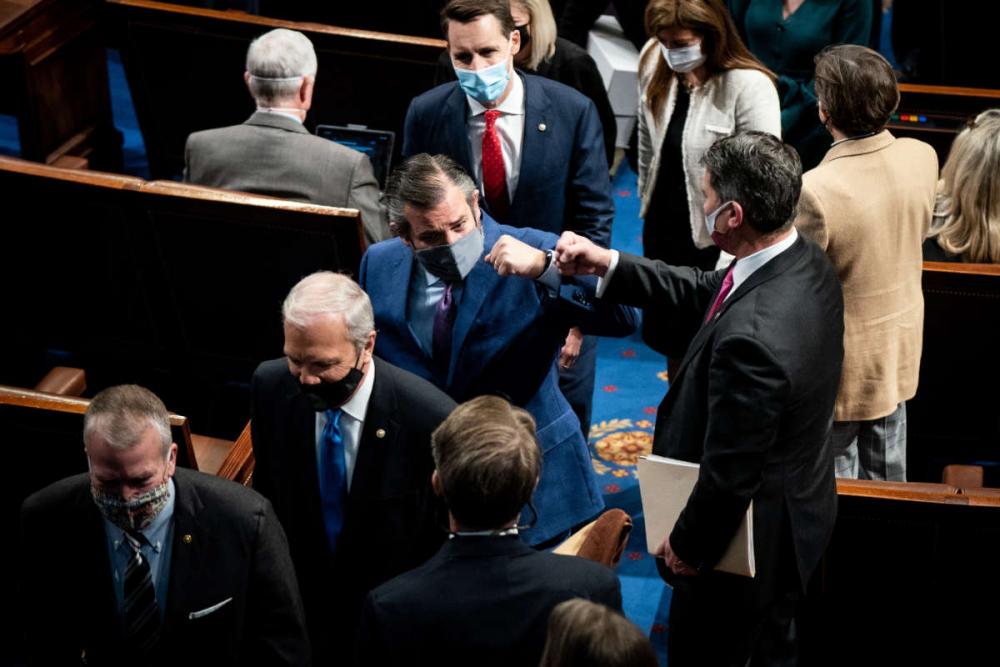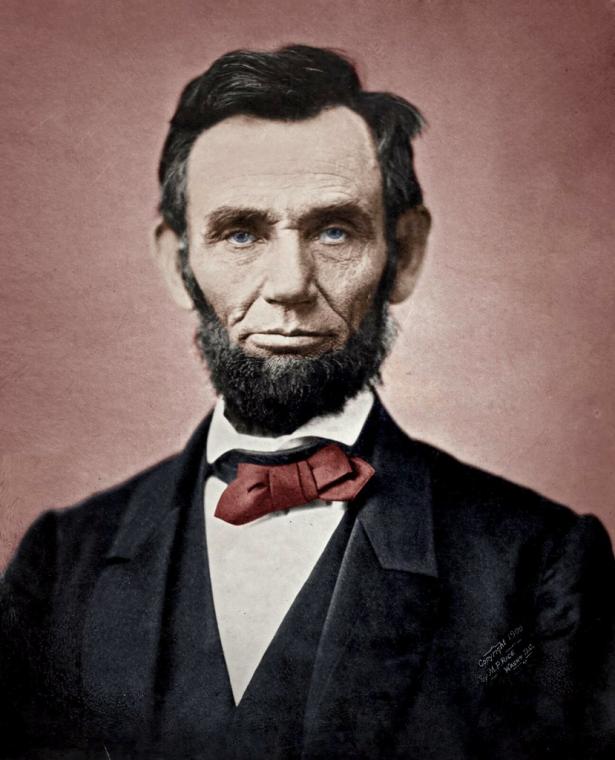The claim: In 1861, 11 senators and three U.S. House members were expelled from Congress for refusing to acknowledge Abraham Lincoln's electoral win
'Co-Conspirators in Sedition': Here Are the Names of Every Republican Who Voted to Overturn Election Results
Amid reports that some House Republicans are expected to challenge the Electoral College results and vote against President-elect Joe Biden's win, based on unsubstantiated claims of massive voter fraud, some social media users have shared what they allege to be a similar time in history.
A viral Facebook post claims to tell what happened to a group of congressmen in the 1860s.
"In 1861, 11 senators & 3 representatives were expelled from Congress for supporting the insurrection and refusing to recognize Abraham Lincoln's electoral win," reads a meme, with over 2,000 shares posted Dec. 31 to the Facebook page of the band CAKE. The post was deleted after USA TODAY reached out for comment.
But similar versions of the claim have also been shared by other users on Facebook. USA TODAY reached out to them for comment.
Fact check: Clinton, Obama left federal government with a lower deficit than when they arrived
History of House and Senate expulsions
Per Article I, Section 5 of the United States Constitution: "Each House may determine the Rules of its Proceedings, punish its Members for disorderly Behaviour, and, with the Concurrence of two thirds, expel a Member."
"In devising this framework, the Constitutional Convention drew upon British legislative tradition as well as nearly 175 years of precedent in the colonial assemblies in North America," reads the site of the U.S. House of Representatives. "Other than the two-thirds requirement, however, the Framers left it up to the House and Senate to determine their own rules and the type of behavior that might warrant expulsion from their respective chambers."
Framers set the two-thirds threshold because expulsion would remove someone who was elected by the popular vote of his or her constituents and, while "the House has wide discretion to act in such cases, it has demonstrated keen deference to the peoples’ choice of their Representatives."
Expulsion is used sparingly, and members who faced expulsion from the House have sometimes chosen to resign instead, and the House has never expelled a member for conduct that took place before their House term.
Fact check: 'Greatest danger to American freedom' quote misattributed to Thomas Jefferson
14 members expelled in 1861
Lincoln's victory in the presidential election brought forth the secession of Southern states. The Senate began to explore what to do with the seats that were left vacant by Southern senators, according to the Senate.
In March 1861, Maine Sen. William Pitt Fessenden argued that Southern states did not have the right to withdraw from the Union, and by leaving the Senate, the Southern members had resigned their seats. Others had argued that states did not have the right to secede. The Senate agreed with Fessenden and declared that the seats of six of the departed colleagues as "vacant" and struck their names from the Senate roll.
Fact check:Over 159 million people voted in the US general election
The resolution for expulsion cited their failure to appear in the Senate and alleged that members "engaged in said conspiracy for the destruction of the Union and Government, or, with full knowledge of such conspiracy, have failed to advise the Government of its progress or aid in its suppression."
The call for expulsion makes no mention of their purported refusal to acknowledge Lincoln's election.
The senators expelled in July 1861 were: James Mason and Robert M. T. Hunter, of Virginia; Thomas L. Clingman and Thomas Bragg, of North Carolina; James Chesnut Jr., of South Carolina; A.O.P. Nicholson, of Tennessee; William K. Sebastian and Charles B. Mitchel, of Arkansas; and John Hemphill and Louis T. Wigfall, of Texas.
John Breckinridge, of Kentucky, was expelled later, on Dec. 4, 1861, for disloyalty to the Union who had "joined the enemies of his country, and is now in arms against the Government he had sworn the support," according to the Senate.
Our fact check work is supported in part by a grant from Facebook.
Jake Johnson
January 7, 2021
Common Dreams

Erin Schaff-Pool / Getty Images // Truthout
"Trump and members of Congress must face consequences for inciting an attempted coup to stop the peaceful transition of power."


Spread the word